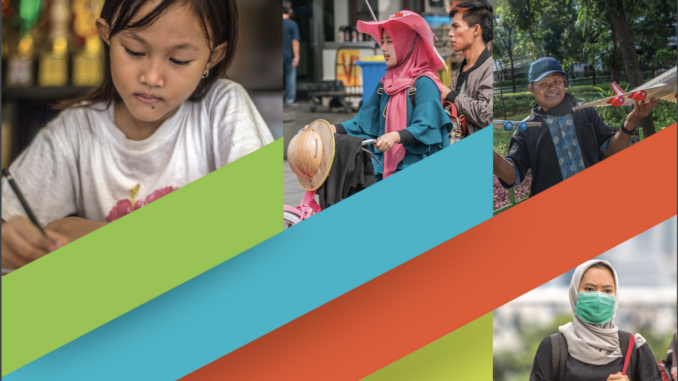
Indonesia has been a leading Asian nation in integrating the United Nations’ Sustainable Development Goals (SDGs) into its planning, implementation, and budgeting systems despite the challenges posed by its intricate and decentralized governance structure. Indonesia adopted a “Big Bang” approach to decentralization, and initiated a series of political, administrative, and fiscal reforms which led to a new power-sharing arrangement being put in place. While it was viewed by some as hasty and implemented without due consideration of consequences and implications, Indonesia’s decentralization policies have succeeded in creating the institutional structure that SDG implementation requires. The country has an elaborate legal framework in place to guide SDG localization.
Within this context this assessment was conducted – to understand the status of SDG localization – a process of integrating subnational contexts in the achievement of the 2030 Agenda. The report provides an overview of the state of SDG localization at the subnational government (SNG) level, by summarizing the successes, challenges, and institutional dynamics which provide the context for the localization process; Assesses the extent of intergovernmental, and cross-stakeholder engagement, identifying good practices and gaps in collaborative and cooperative efforts; and provides a set of recommendations that can help improve the quality, pace, and relevance of SDG localization at the SNG level.
The findings of the assessment were mainly positive, reflecting the existence of several enabling conditions for SNGs to achieve the SDGs, reaffirming the national government’s support for and commitment to localization, and demonstrating how SNGs are successfully implementing the SDGs.
These positives, however, are tempered by several gaps that serve as speed breakers for Indonesia’s journey on SDG localization. Some of these are:
- Structural, particularly, in terms of fiscal allocation and distribution mechanisms.
- Strategic, such as in relation to not being able to leverage the existence of a vibrant, progressive private sector and one of the world’s largest and trusted civil society networks.
- Transactional issues, which relate, for example, to challenges in terms of reporting adequately, and ensuring disclosure.
- Systemic hurdles revolving around the need to enhance role of political leadership on localization, legislative accountability, and inter-government processes.
The report highlights several points for consideration outlined in each chapter of the report, linked to the findings. Some of the target actions include the following:
Addressing the Capabilities Gap
- Conduct an Institutional Review of Bappeda
- Develop a Framework for New Urban Governance
- Review the SDG Center Business Model
- Develop an SDG Acceleration Strategy for Disadvantaged Regions
Addressing the Engagement and Inclusion Gap
- Develop a Non-State Actors Engagement Strategy for SDG Localization
- Develop an Institutional Mechanism for Citizen Feedback and Inclusive Planning
This report has been prepared with technical and financial support by the Governance Thematic Group (GTG) of the Asian Development Bank (ADB). The link to the full report can be found here: Snapshot of Sustainable Development Goals at the subnational government level in Indonesia.



